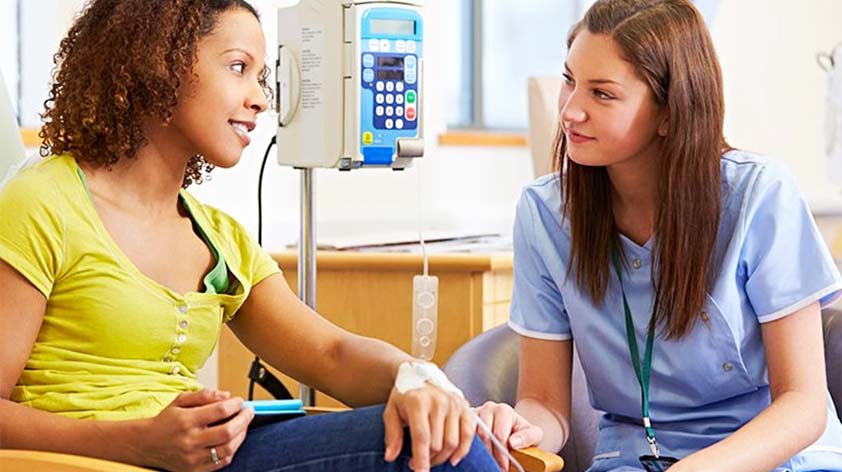
Finding out you have cancer is frightening. It’s a moment filled with a whirlwind of emotions, ranging from disbelief to fear and uncertainty. But you aren’t the first person to receive a cancer diagnosis. An estimated 1.9 million were diagnosed with this disease in 2022. That’s according to a scientific paper published in the American Cancer Society journal.
The diagnosis, however, isn’t the hardest part of cancer. Rather, the chemotherapy is. This powerful, anti-cancer drug treatment takes a toll on the physical and mental health of cancer patients. However, there are numerous strategies you can adopt to make your chemotherapy sessions comfortable. Here, we’ll discuss a few of them.
1. Dress for Comfort
Prioritize comfort when choosing what to wear to your chemotherapy session. Cancer patients generally wear “street clothes” because they are comfortable. Opt for them when going to your appointments.
Make sure the clothes you choose are loose-fitting, so you can move freely. Also, choose breathable fabrics, such as bamboo or cotton. These minimize irritation and promote airflow.
2. Get an Implantable Port
Getting an implantable port can significantly improve your chemotherapy experience. Implantable ports, also known as port-a-cath, are surgically implanted under the skin, usually in the chest area, to provide a direct line to a major vein.
Instead of repeatedly inserting needles into your veins for drawing blood and chemotherapy sessions, your healthcare professional will be able to access the port easily with a special needle. Besides discomfort, this minimizes the risk of vein damage, making the process less stressful and more efficient.
Avoid going for Bard PowerPort, though. The brand’s implantable catheter devices have garnered the headlines due to fracturing and migrating out of their position in the human body. This has resulted in serious injuries in people. Some injuries and complications, TorHoerman Law informs, linked with Bard PowerPort device include deep vein thrombosis, arterial puncture, heart attack, and pulmonary embolism.
A large number of people have filed lawsuits against the manufacturer of Bard PowerPort. One port catheter lawsuit is filed by a woman from Missouri who developed blood clots in the neck due to Bard PowerPort ClearVue Implantable Port. She got the port implanted for the delivery of chemotherapy in March 2022 to treat colon cancer.
Patrice T., the plaintiff, accused the manufacturer of ports, Bard Access Systems Inc., owned by Becton, Dickinson, and Company, for failing to adequately warn doctors and patients about the risks associated with its PowerPort.
To avoid such complications, exploring alternative options with a proven track record of performance and patient satisfaction would be wise.
3. Bring Along a Friend or a Family Member
Going alone to chemotherapy sessions can feel overwhelming. Consider Bringing along a friend or family member to your cancer treatment. Having a familiar face by your side will alleviate anxiety and feelings of loneliness during the treatment.
Your companion—a friend or a family member—can offer emotional encouragement and distract you with conversation or activities. You can catch up with your loved one and even share your experience as a cancer patient. Another benefit of bringing a support person is that they can drive you to and from the appointments.
But before you invite someone to accompany you to chemotherapy sessions, you must make sure they understand your expectations and are prepared for the experience.
4. Get Enough Rest to Reduce Chemo Fatigue
Fatigue—a lack of energy or an overall feeling of tiredness—is a common side effect of chemotherapy. More than 80% of people undergoing chemo experience fatigue. Cancer fatigue, patients say, is different from the fatigue they have experienced in the past.
Your body is working hard to fight the disease and recover from the effects of the treatment. Thus, make sure to get plenty of rest. Maintain a consistent sleep schedule—go to bed at the same time, both on weekdays and weekends. This will keep your circadian rhythm in check.
Keep your bedroom cool, dark, and quiet to make your sleeping environment comfortable. Gentle stretches or relaxing techniques, such as deep breathing exercises before bedtime, can promote better sleep. Consider incorporating them before sleeping. If you’re experiencing difficulty sleeping due to anxiety treatment side effects, speak with your healthcare team for guidance.
To wrap things up, chemotherapy, no doubt, presents significant physical and emotional challenges. But you can make your sessions comfortable and manageable by following these tips.
Note that side effects like fatigue, nausea, pain, or hair loss often accompany cancer treatments. These might have an adverse impact on your comfort and quality of life. However, your healthcare team can help you manage these side effects effectively. Be sure to consult them regarding this and any other query you may have.
Lastly, keep in mind that you’re not alone in this journey. There are resources and strategies available to help you every step of the way, so leverage them.









